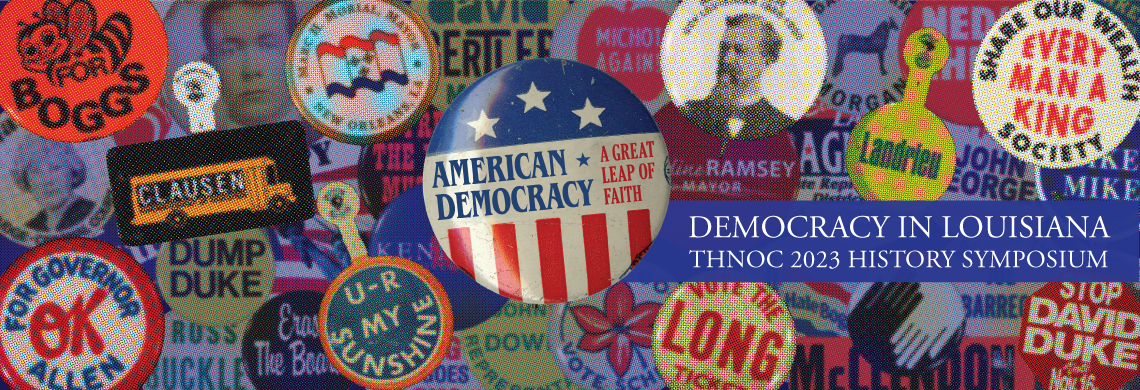ABOUT THE HISTORY SYMPOSIUM
Democracy in Louisiana
Champagne reception immediately following the program
General admission, $75; Students, teachers, and active military with a valid ID, $20
Since becoming a state in 1812, Louisiana has participated in America’s bold experiment with democracy. In anticipation of American Democracy: A Great Leap of Faith, a traveling exhibition from the Smithsonian Institution coming to THNOC in mid-June, our 2023 History Symposium explores how the democratic system has functioned in Louisiana and how key events have influenced our current political environment. Moderator Dr. Pearson Cross and a vibrant slate of speakers will address topics ranging from the drafting of the first constitution and the politics of enslavement to the women’s suffrage movement in New Orleans and how Louisiana’s environment impacts public policy. The symposium also complements “Yet She Is Advancing”: New Orleans Women and the Right to Vote, 1878–1970, a companion exhibition to American Democracy opening at THNOC on April 28.
The Hotel Monteleone’s special rate for History Symposium guests is $289/night. Reference “HNOC 2023 Symposium” to reserve at this rate. Reservations may be made online here or by calling the Group Reservations number at (800) 217-2033. The deadline to reserve rooms at this reduced rate is March 7, 2023.
SCHEDULE
- 8–9 a.m.
Registration
- 9–9:10 a.m.
Welcome
Daniel Hammer, President and CEO, The Historic New Orleans Collection
- 9:10–9:20 a.m.
Introduction
Dr. Pearson Cross, moderator, Professor and Director, School of Behavioral and Social Sciences, University of Louisiana at Monroe, and coeditor of The Party is Over: The New Louisiana Politics (LSU Press, 2022)
- 9:20–10 a.m.
Keynote Address: The Promise of Democracy: Federal Tribal Acknowledgment Policy in Louisiana
Dr. Brian Klopotek, Associate Professor of Indigenous, Race, and Ethnic Studies, University of Oregon, in conversation with John Barbry, Director of Development and Programming for the Tunica-Biloxi Language and Cultural Preservation Program
- 10–10:15 a.m.
Coffee Break
For all of the late-morning and afternoon sessions, Dr. Cross will offer constructed responses, tying the historical topics to today’s political landscape.
- 10:15–11 a.m.
Governance through Amendment: The Evolution of the State Constitution
Dr. Steven Procopio, President, Public Affairs Research Council of Louisiana
- 11–11:45 a.m.
The Centrality of Enslavement in Early Statehood
Dr. Laura Rosanne Adderley, Associate Professor of History, Tulane University
- 11:45 a.m.–1:15 p.m.
Lunch (on your own)
- 1:15–2 p.m.
Historical Memory of Louisiana's Racialized Identities
Dr. Theodore R. Foster III, Assistant Professor of African American History and Studies, Benedictine University
- 2–2:45 p.m.
New Orleans Women and the Right to Vote, 1878–1970
Dr. Libby Neidenbach, Interpretive Training Coordinator, The Historic New Orleans Collection
- 2:45–3 p.m.
Coffee Break
- 3–3:45 p.m.
From Populism to Partisanship
Dr. Albert L. Samuels, Jewel L. Prestage-Kellogg Professor of Political Science and the Chair of the Department of Political Science and Geography, Southern University and A&M College
- 3:45–4:15 p.m.
The Bottom Line: The Significance of Data in Our Democracy
Rebecca Mowbray, President, CEO, and Samuel Zemurray Chair in Research Leadership, Bureau of Governmental Research, in conversation with Lamar Gardere, Executive Director, the Data Center
- 4:15–5:00 p.m.
Democracy and the Environment Before and After Katrina
Dr. Andy Horowitz, Connecticut State Historian, Associate Professor of History, University of Connecticut
- 5:00–5:15 p.m.
Questions and Answers
Dr. Pearson Cross
- 5:15–5:30 p.m.
Closing Remarks
Dr. Pearson Cross and Daniel Hammer
- 5:30–7:30 p.m.
Champagne Reception
THE SPEAKERS
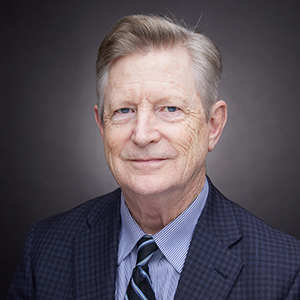 DR. PEARSON CROSS is professor and director of the School of Behavioral and Social Sciences at the University of Louisiana at Monroe, where he teaches courses in Louisiana and American politics. His most recent book is The Party Is Over: The New Louisiana Politics (LSU Press, 2022). He also hosts Bayou to Beltway, a bimonthly radio program on Louisiana politics on Monroe’s NPR affiliate, KEDM.
DR. PEARSON CROSS is professor and director of the School of Behavioral and Social Sciences at the University of Louisiana at Monroe, where he teaches courses in Louisiana and American politics. His most recent book is The Party Is Over: The New Louisiana Politics (LSU Press, 2022). He also hosts Bayou to Beltway, a bimonthly radio program on Louisiana politics on Monroe’s NPR affiliate, KEDM.
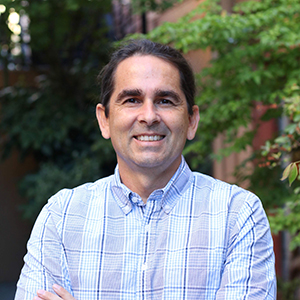 DR. BRIAN KLOPOTEK is associate professor of Indigenous, race, and ethnic studies at the University of Oregon. He has authored numerous books and articles on Native American politics and cultures, including Recognition Odysseys: Indigeneity, Race, and Federal Tribal Recognition Policy in Three Louisiana Indian Communities (Duke University Press, 2011). Klopotek was drawn to this topic by his own heritage as a nonfederal Choctaw with Louisiana roots.
DR. BRIAN KLOPOTEK is associate professor of Indigenous, race, and ethnic studies at the University of Oregon. He has authored numerous books and articles on Native American politics and cultures, including Recognition Odysseys: Indigeneity, Race, and Federal Tribal Recognition Policy in Three Louisiana Indian Communities (Duke University Press, 2011). Klopotek was drawn to this topic by his own heritage as a nonfederal Choctaw with Louisiana roots.
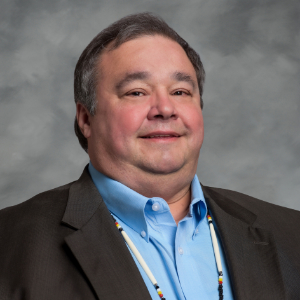 JOHN BARBRY is director of development and programming for the Tunica-Biloxi Language and Culture Revitalization Program (LCRP). In 1987, Barbry assisted with cataloging of the “Tunica Treasure,” a vast collection of 18th-century Native and European trade and ceremonial goods unearthed at the former village site and cemetery of the Tunica people. In 1993, he became the first Native American to be appointed an archivist at the Smithsonian Institution’s National Museum of the American Indian. Barbry received the 2022 Champion of Culture Award from the Louisiana Endowment for the Humanities.
JOHN BARBRY is director of development and programming for the Tunica-Biloxi Language and Culture Revitalization Program (LCRP). In 1987, Barbry assisted with cataloging of the “Tunica Treasure,” a vast collection of 18th-century Native and European trade and ceremonial goods unearthed at the former village site and cemetery of the Tunica people. In 1993, he became the first Native American to be appointed an archivist at the Smithsonian Institution’s National Museum of the American Indian. Barbry received the 2022 Champion of Culture Award from the Louisiana Endowment for the Humanities.
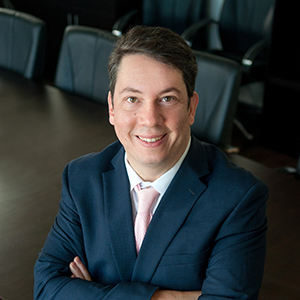 DR. STEVEN PROCOPIO is the president of the Public Affairs Research Council of Louisiana (PAR), where he previously served as policy director, guiding the organization’s research agenda. Prior to joining PAR, Procopio was chief of staff of the Louisiana Division of Administration and served as the director of research and accountability for the Louisiana Office of the Lieutenant Governor and the Department of Culture, Recreation, and Tourism.
DR. STEVEN PROCOPIO is the president of the Public Affairs Research Council of Louisiana (PAR), where he previously served as policy director, guiding the organization’s research agenda. Prior to joining PAR, Procopio was chief of staff of the Louisiana Division of Administration and served as the director of research and accountability for the Louisiana Office of the Lieutenant Governor and the Department of Culture, Recreation, and Tourism.
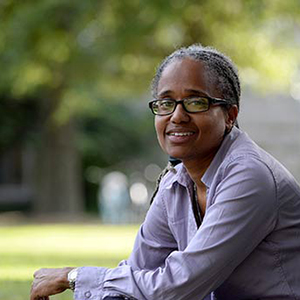 DR. LAURA ROSANNE ADDERLEY is associate professor of history at Tulane University. She specializes in the history of the African diaspora, the Atlantic slave trade, Black enslavement in the Americas, and Caribbean history. She is the author of “New Negroes from Africa”: Slave Trade Abolition and Free African Settlement in the Nineteenth-Century Caribbean (Indiana University Press, 2006).
DR. LAURA ROSANNE ADDERLEY is associate professor of history at Tulane University. She specializes in the history of the African diaspora, the Atlantic slave trade, Black enslavement in the Americas, and Caribbean history. She is the author of “New Negroes from Africa”: Slave Trade Abolition and Free African Settlement in the Nineteenth-Century Caribbean (Indiana University Press, 2006).
 DR. THEODORE R. FOSTER III is assistant professor of African American history and studies at Benedictine University. He previously taught African American history at the University of Louisiana at Lafayette. Foster’s research, teaching, and writing interests center on how Black freedom narratives of the Civil Rights Movement circulate in popular culture, civil rights tourism, political campaigns, immigrant-justice activism, memorials, and museums.
DR. THEODORE R. FOSTER III is assistant professor of African American history and studies at Benedictine University. He previously taught African American history at the University of Louisiana at Lafayette. Foster’s research, teaching, and writing interests center on how Black freedom narratives of the Civil Rights Movement circulate in popular culture, civil rights tourism, political campaigns, immigrant-justice activism, memorials, and museums.
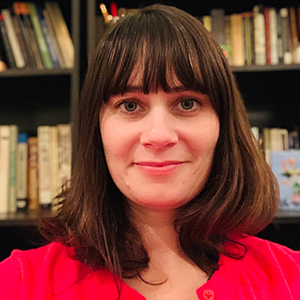 DR. LIBBY NEIDENBACH is the interpretive training coordinator at The Historic New Orleans Collection, where she is also the curator of “Yet She Is Advancing:” New Orleans Women and the Right to Vote, 1878-1970, which opens on April 28, 2023. She earned a PhD in American Studies at the College of William and Mary, and she previously worked as a public historian for the National Park Service in Richmond, Virginia, and New Orleans.
DR. LIBBY NEIDENBACH is the interpretive training coordinator at The Historic New Orleans Collection, where she is also the curator of “Yet She Is Advancing:” New Orleans Women and the Right to Vote, 1878-1970, which opens on April 28, 2023. She earned a PhD in American Studies at the College of William and Mary, and she previously worked as a public historian for the National Park Service in Richmond, Virginia, and New Orleans.
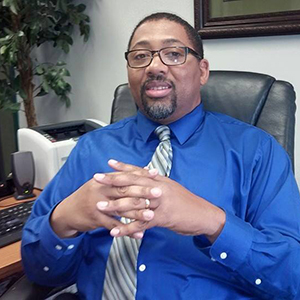 DR. ALBERT L. SAMUELS is the Jewel L. Prestage-Kellogg Professor of Political Science and the chair of the department of political science and geography at Southern University and A&M College. His research interests include American, Black, and Louisiana politics; educational policy; and voting rights. He has written numerous scholarly articles and is a frequent commentator on politics at the local, state, and national levels.
DR. ALBERT L. SAMUELS is the Jewel L. Prestage-Kellogg Professor of Political Science and the chair of the department of political science and geography at Southern University and A&M College. His research interests include American, Black, and Louisiana politics; educational policy; and voting rights. He has written numerous scholarly articles and is a frequent commentator on politics at the local, state, and national levels.
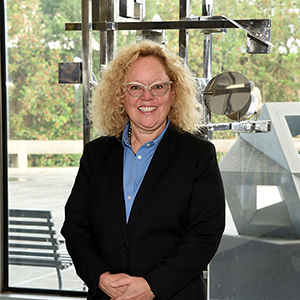 REBECCA MOWBRAY is the president, CEO, and Samuel Zemurray Chair in Research Leadership at the Bureau of Governmental Research (BGR). Throughout her career, she has focused on governmental reform, accountability, and transparency. Before joining BGR, she worked as a program evaluator and a journalist. She has master’s degrees in journalism and international relations. Mowbray has also worked in former Czechoslovakia and Indonesia, where she was a Luce Scholar.
REBECCA MOWBRAY is the president, CEO, and Samuel Zemurray Chair in Research Leadership at the Bureau of Governmental Research (BGR). Throughout her career, she has focused on governmental reform, accountability, and transparency. Before joining BGR, she worked as a program evaluator and a journalist. She has master’s degrees in journalism and international relations. Mowbray has also worked in former Czechoslovakia and Indonesia, where she was a Luce Scholar.
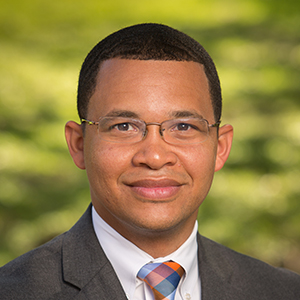 LAMAR GARDERE is the executive director of the Data Center, where he is responsible for guiding the center’s mission of democratizing data into realistic action, ensuring quality standards, and overseeing the ongoing impact of the organization. Gardere previously served as the chief information officer for the City of New Orleans's Office of Information Technology and Innovation. He is nationally recognized for his work implementing and developing the open-data policy for the city.
LAMAR GARDERE is the executive director of the Data Center, where he is responsible for guiding the center’s mission of democratizing data into realistic action, ensuring quality standards, and overseeing the ongoing impact of the organization. Gardere previously served as the chief information officer for the City of New Orleans's Office of Information Technology and Innovation. He is nationally recognized for his work implementing and developing the open-data policy for the city.
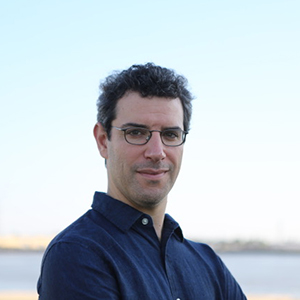 DR. ANDY HOROWITZ is an associate professor of history at the University of Connecticut and serves as the Connecticut State Historian. A scholar of the modern US, his research focuses on disasters and the questions they raise about race, class, community, trauma, extractive industry, metropolitan development, and environmental change. He is the author of Katrina: A History, 1915–2015 (Harvard University Press, 2020), which won the 2021 Bancroft Prize in American History.
DR. ANDY HOROWITZ is an associate professor of history at the University of Connecticut and serves as the Connecticut State Historian. A scholar of the modern US, his research focuses on disasters and the questions they raise about race, class, community, trauma, extractive industry, metropolitan development, and environmental change. He is the author of Katrina: A History, 1915–2015 (Harvard University Press, 2020), which won the 2021 Bancroft Prize in American History.

